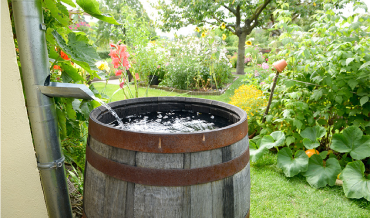
Mr. Rooter Plumbing shares simple ways to boost your home’s water quality.
|
Are you unhappy with the quality of the water in your home? Does your tap water have a weird taste or smell? Are you worried that your family may be ingesting or absorbing dangerous substances through your water supply?
In an ideal world, everyone would have access to safe and clean drinking water, but unfortunately, this isn't always the case. Consuming contaminated water can cause many diseases that bring unpleasant symptoms, including diarrhea, vomiting, and pneumonia. In severe cases, consuming contaminated water can even lead to death.
But when it comes to poor water quality, it’s not just human health you need to worry about. Your pets deserve clean, fresh drinking water. Many garden plants are sensitive to chemicals, sodium, and pH levels in their water supply. These are all important reasons why it’s so important to get your water tested and take control of your water quality.
Simple Steps to Improve Water Quality
Fortunately, if you're not happy with the water quality in your home, there are things you can do about it. Here are five strategies to improve water quality that will make your water safe to use.
-
Test Your Water
The easiest way to test the quality of the water in your home is with a test kit. These kits are user-friendly and will accurately indicate the presence of various contaminants in your water and tell you whether the water is safe to use. If you find that the water is unsafe, you and your plumber can then determine additional steps necessary to make your water safe to use and consume. -
Boil Your Water
Boiling water is a short-term solution that makes water contaminated by harmful bacteria and parasites safe for consumption. If you need to boil tap water before consuming it, you need to contact a water quality professional for a home filtration system installation. In the meantime, before boiling contaminated water, filter it through a clean cloth or coffee filter first. Then, bring the filtered water to a rolling boil for at least a minute. If you are at a high elevation (6,500 feet or more), boil for three minutes. -
Filter Your Water
A good water filtration system can remove sediment from your drinking water. A good water purification system can remove harmful chemicals, metals, and microorganisms from your drinking water. A whole-home water filtration/purification system installation will keep your family safe from the ill effects of poor water quality. If you are only concerned about filtering the water coming out of certain taps, install a filter or reverse osmosis system just for that faucet. -
Get a Water Softener
If your water test revealed problems with minerals, consider having a water softener installed. A water softener will remove calcium, magnesium, and iron from the water. This process will make your water safer, taste better, and even prolong the life of appliances like dishwashers. -
Take Care of Your Pipes
Keeping the water pipes in good condition reduces the chances of harmful bacteria or chemicals entering your water supply. If the water pipes in your home are old or you notice any signs of damage, contact a plumbing professional.
Let Mr. Rooter Plumbing’s Experts Help Improve Your Water Quality
If you’re looking for professional help to improve your home’s water quality, request a job estimate online or call to connect with your local Mr. Rooter Plumbing today.

